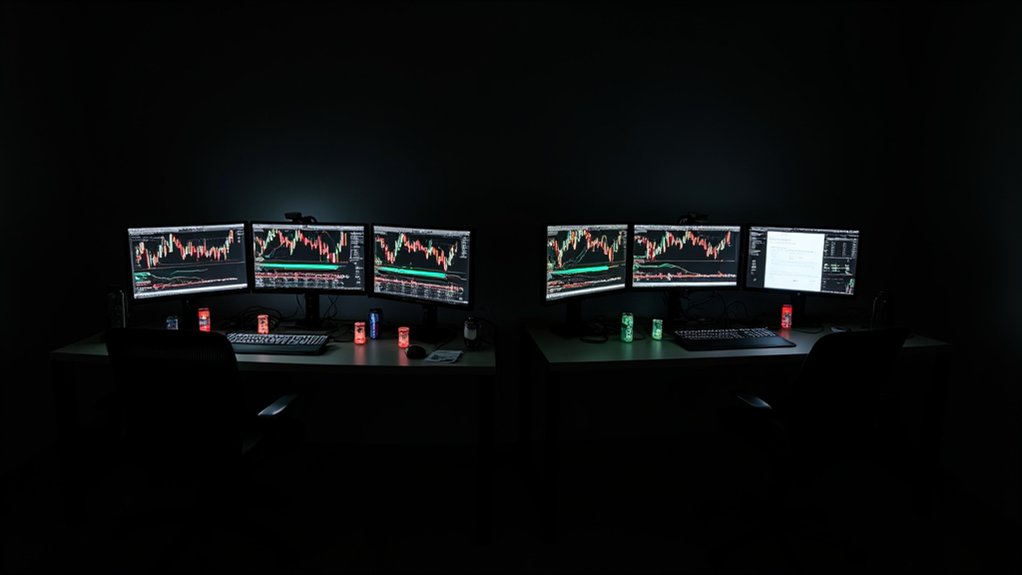A carry trade is a forex strategy where a trader borrows money in a currency with a low interest rate and uses it to buy a currency with a higher interest rate. The goal is to profit from the difference between these interest rates, known as the “carry.”
For example, if you borrow Japanese yen at 0.5% interest and invest in Australian dollars earning 3.5% interest, you could potentially earn the 3% difference. This strategy works best when the exchange rate between the two currencies remains stable or moves in your favor.
However, if the higher-yielding currency weakens markedly against the funding currency, exchange rate losses can quickly exceed any interest earned, making carry trades particularly vulnerable during periods of market volatility or sudden risk aversion. Some traders use forward contracts to hedge against exchange rate risk and lock in profits from interest rate differentials. The interest rate differential between currency pairs not only creates the profit potential in carry trades but also influences broader exchange rate movements in forex markets.
In short: Borrowing in a low-interest-rate currency to invest in a high-interest-rate currency, profiting from the interest rate differential.
Example in Action
You borrow 100,000 US dollars at an interest rate of 2% per year and convert them into South African rand at an exchange rate of 18.00, giving you 1,800,000 ZAR.
You then deposit the rand in a South African bank account earning 8% annual interest. After one year, you earn 144,000 ZAR in interest (8% of 1,800,000), while you owe only 2,000 USD in interest (2% of 100,000).
If the exchange rate stays at 18.00, you convert your interest back to 8,000 USD (144,000 ÷ 18), netting a profit of 6,000 USD from the 6% interest rate differential—this is the carry trade profit. Many traders manage their currency exposure throughout this period using FX swaps, which combine a spot transaction with an offsetting forward contract to maintain positions while managing liquidity. Traders often use leverage in Forex to control larger positions than their initial capital would normally allow, potentially amplifying both the profits from interest rate differentials and the risks from exchange rate movements.
Why It Matters
For African traders watching their accounts bleed during volatile swings, understanding carry trade dynamics isn't academic—it's survival.
When institutional money suddenly unwinds positions, high-yield currencies crash hardest.
Nigerian traders holding ZAR or Egyptian pound positions learn this painfully.
The interest differential that looked attractive Thursday evaporates Friday when global risk-off hits.
Carry reversals don't discriminate by geography—they punish leverage everywhere.
Common Questions
Which African Currencies Offer Positive Interest Rate Differentials for Carry Trades?
Nigerian naira, Ghanaian cedi, Egyptian pound, Zimbabwean dollar, and Malawian kwacha offer positive carry trade differentials, with central bank rates between 25–35%. However, currency depreciation, controls, and volatility materially offset yield advantages for African-based traders.
Do African Brokers Allow Carry Trade Strategies With Local Currency Pairs?
Yes, African brokers permit carry trade strategies with local currency pairs. South African and Kenyan brokers offer ZAR and KES pairs, enabling traders to exploit interest rate differentials, though wider spreads and volatility require careful risk management.
How Do Capital Controls in African Countries Affect Carry Trade Execution?
Capital controls severely limit carry trade execution by restricting fund repatriation, creating FX shortages, widening spreads, and exposing traders to sudden policy shifts—especially in Angola, Ethiopia, and Algeria—which raises costs and unpredictability for African traders.
Can Nigerian Traders Profit From Carry Trades Using the Naira?
Nigerian traders face severe barriers to naira carry trades: most brokers don't offer NGN pairs, currency controls block execution, and naira depreciation historically erodes interest rate gains faster than differential profits accumulate, making retail profitability nearly impossible.
What Swap Fees Do South African Brokers Charge on Carry Positions?
South African brokers charge swap fees varying widely by currency pair and individual broker policies. EUR/ZAR and USD/ZAR pairs typically reflect SARB interest rate differentials plus broker markups, ranging from modest credits to significant debits daily.
« Back to Glossary Index




